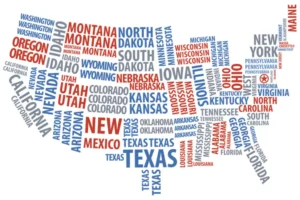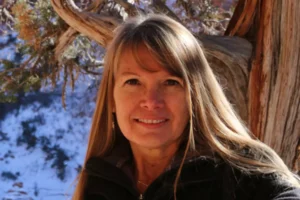The imposition of ashes on Ash Wednesday is nothing if not bold.
The whole day is bold. There was a bold gash of ecclesiastical purple hanging on the wall of my Puritan-white simple Episcopal church, and my priest wore an equally startling purple chasuble, which he will wear for all of Lent. It is a bold liturgy the Book of Common Prayer suggests we recite: to acknowledge that we are of dust and to dust we shall return, but still proclaim our chosen-ness as the children of God anyway.
A bold statement
But the ashes are boldest of all. A dark and undeniable slash across your forehead, a bold proclamation of death and resurrection all at once. You forget that it is on your forehead, and you walk out of church, out into the world, an indisputable reminder that Christ died for us and that we know it.
The cross my priest made on my forehead on Ash Wednesday was no polite, small slice of silver, dangling around my neck but easily slipped behind my blouse should I ever get uncomfortable, should I ever not want to advertise that I am a Christian. The ash cross is bold and undeniable.
I forgot it was there, sashayed out of church without thinking about it, until I got stares on the subway. There might be some neighborhoods in New York where forehead crosses on Ash Wednesday are commonplace — maybe small Catholic neighborhoods in Little Italy or maybe the Polish enclaves across town. But not my subway line, full of sophisticated Upper West Siders. I saw only one other person on the whole train with ashes.
No one said anything to me on the train. Some people stared, one smiled sadly, and I shifted uncomfortably, wondering what they wondered.
It wasn’t till I got to campus that I got truly uncomfortable. Columbia, its charming chapel notwithstanding, is a place devoted to different types of truths, not so eager to proclaim this one.
Evangelism
Evangelizing, if it means handing out tracts, is not something I do. I don’t ever casually swing my arm around a friend’s shoulders, look meaningfully into her eyes, and ask “Susie, if you were hit by a bus tomorrow, would you go to heaven?” I don’t even talk very comfortably, among my friends the cultured despisers, about God and what He is doing in my life. I often hedge: “Well, you know, I would describe this as God at work.” A safe, post-modern, inoffensive testimony to God.
When I come face-to-face with Jesus’ commission to the disciples — go and spread the Word around the world — I get uncomfortable too, for I know I am not really doing that.
I tell myself I embody the new lifestyle evangelism, that most people know I am a Christian and that when they see that I am sometimes joyful and sometimes peaceful when they are not, they will want to know my secret.
Truth to tell, I am just embarrassed. I have spent a lot of my life at universities, and though the university’s standards are not my standards, they still mean something to me. The university — this one in particular — is filled with people I respect, people I want to impress. I want to be taken seriously. I want to fit in. Fitting in is tough if you are constantly calling attention to the way you don’t fit in.
Silent and non-silent
I think the most effective witnessing I did on Ash Wednesday was the silent witnessing. Columbia is a small place, and people know me, and I think a handful of them respect me, and I suspect it meant something to them just to be reminded that I am a Christian — and that, for once, I was going to spend all day not hiding that fact.
But there were certainly instances of non-silent witnessing. Late at night, I had to run out to the library to return a book; my cross had rather faded to a smudge, and outside of Butler I was chatting to an acquaintance who finally said, “You know, you have a smudge on your forehead; here, let me help you wipe it off.” She fished for Kleenex.
“Ah, well, actually,” I muttered, “actually, it’s supposed to be there. It’s Ash Wednesday today, you know.” She looked at me blankly. “A Christian holiday,” I said. Her gaze was still blank. “Christian,” I said, louder, imagining I might have been living before Constantine. “It inaugurates Lent, the season that culminates in Easter. The priest puts these cross ashes on everyone’s forehead to remind them that Christ died for us.”
That was just one instance of the witnessing I was willy-nilly dragged into because of my ashen cross. Some of the questions were more personal: a college classmate who remembered me from my Orthodox Jew days but did not know I had become a Christian looked at me quizzically and said, “When did you join up with Jesus?” providing me the chance to tell him not only when, but why.
And one of the questions was hostile. I was leading an American history discussion group in a dormitory lounge. As the group broke up, an on-looker, not one of my students, came up to me, visibly upset. “Here you are talking about the Civil War and acting all enlightened and challenging your students not to just take the easy answers. But all the while you are proclaiming that you have taken quite an easy answer yourself.” At first, my mind still stuck on the First Confiscation Act and the Emancipation Proclamation, I wasn’t sure what the student meant. When I didn’t respond, she added, “You’re up here trying to teach them critical inquiry, but you can’t be very critical yourself with that cross on your face.”
They hadn’t taught me how to handle this situation in my confirmation class. “Well,” I began. “I am also here trying to facilitate an open discussion with students, and if a student wanted to ask me about my faith after class, I would be happy to discuss it. I don’t see being a Christian as prohibiting critical inquiry.” In fact, I thought, if you inquire critically into most of the other world’s truths, you’ll realize they don’t hold much water, and you’ll come around to this one.
The student, it turned out, was upset by something she had read about so-called Creationism. “If people reject the theory of evolution, they can’t really be critical thinkers,” she said. “They don’t really belong at a university.”
Feeling my way to more familiar ground, I responded that scientific theories have come and gone. What seems unquestionable truth in one age may seem laughable in another. So it’s probably not a good idea to make any theory the measure of rationality.
“Besides,” I said, “lots of Christians disagree with one another about the world’s beginning. A belief in a particular scientific doctrine is not what makes us Christians. What makes us Christians is a shared belief in the life, death and resurrection of Jesus, and that is why I am wearing this cross of ashes.”
It may have been failed evangelism. The student, after all, didn’t kneel with me and pray the sinner’s prayer. But I consoled myself that it might not have been a total failure. After all, before I became a Christian, many people said many things to me that didn’t result in my immediate conversion, but over time, they added up. Maybe just knowing that a normal-seeming graduate student at an Ivy League school is willing to proclaim, at least one day a year, that she is a Christian, will lodge somewhere in that student’s heart.
Passover and liberation
The day reminded me, actually, of the Passover seder. I suppose that is fitting, since the Passover seder is about commemorating liberation, and Ash Wednesday inaugurates the season that culminates in the greatest liberation of all, the resurrection of Christ from the dead.
At the Passover seder, you do all sorts of strange things — you drink four cups of wine, you eat bitter herbs, you eat unleavened bread. Of course, there is a specific reason for each of these actions: You eat the horseradish to remember the bitterness of slavery in Egypt; you eat the unleavened bread in remembrance of the Israelites who, in their haste to flee slavery, did not have time to let bread rise. But the rabbis teach us there is a more general reason for all these curious culinary gestures. It is to stimulate the interest of children. Kids at the table will notice that something is out of the ordinary — they don’t eat bitter herbs and flat bread every night — and they will ask why the family isn’t eating its usual dinner rolls and pumpernickel loaves. Then their parents will have an opening to tell them the story of what God did for the Jews in Egypt.
An important reminder
The cross on our foreheads is meant to be a dramatic reminder to ourselves — and it is that. When my priest looked at me and said, “Of dust you are made and to dust you shall return,” I remembered, deeply, what God had done for me — He had not only created me, He had then poured out His grace upon me in the blood of His Son. Me, a bunch of dust!
But the cross also stimulates other people’s questions. It provided me with an unmistakable, unavoidable opportunity — even obligation — to witness.
I don’t know if any of my Ash Wednesday evangelism was successful, if success means that someone came to faith as a result of my ashes. But it was successful if success means that it did some spiritual work on me. I was brought face to face with my own discomfort about being a Christian on a secular campus, and I was brought just a few steps closer to shedding that discomfort. I sometimes daydream about teaching at a Christian college, where I wouldn’t have to deal with this particular anxiety. It would be a given, rather than a surprise, that I called myself a follower of Jesus.
But God seems to have placed me, at least for the time being, at Columbia. I suspect he didn’t place me here just to get an education and a fancy degree, but also to be a little salt, a little leaven to the loaf. On Ash Wednesday, I saw that I could, stammers and embarrassment and all, be that leaven. On Ash Wednesday, I was forced into it — I was a living witness to Christ just by walking down College Walk. The challenge, as I enter Lent, is to be that bold in my proclamation of the Gospel all year.
Copyright 2001 Lauren F. Winner. All rights reserved.










